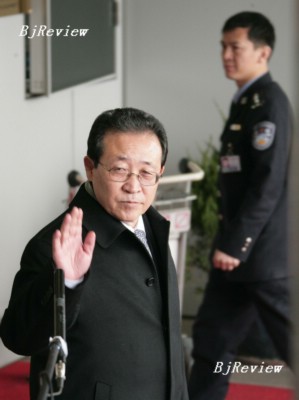
While the outcome of the latest round of the six-party talks on the Korean nuclear issue was viewed as a cause for optimism, the final goal-the denuclearization of the Korean Peninsula-will not be reached until four obstacles are removed.
February 8-13, the third phase of the fifth round of talks, involving the United States, China, Japan, Russia, South Korea and North Korea, was held in Beijing. Prior to the meeting, the concerned nations engaged in a flurry of diplomatic activities.
In mid-January, negotiators from the United States and North Korea met in Berlin, Germany, and in late January they held another discussion in Beijing.
On February 13, an agreement was reached among the six parties, which was quite encouraging.
In spite of the progress made, the goal of attaining a nuclear-free Korean Peninsula through peaceful negotiation must overcome four obstacles.
Four major obstacles
The first is how to position the six-party talks; that is, the parties should make it clear whether the purpose of the talks is to postpone the time when they must show their hand, or to realize the denuclearization of the peninsula. From the time the talks began, there was a conflict between the two positions. If the first stance is considered the goal, the system will put top priority on merely holding talks. Thus, maintaining the system of the talks, rather than their efficiency and results, becomes the focus and priority. In short, as long as the talks continue, that amounts to a success. Actually, in this way the talks are turned into a time-consuming game with multiple players.
If the system is regarded as the method for achieving the denuclearization of the Korean Peninsula, then the concerned parties will treat the talks as a tool that serves that goal. If it works, keep it; if it does not work well, adjust it; and if it doesn't work at all, abandon it. In this way, more attention will be paid to the efficiency and outcome of the talks. The concerned parties will keep a timeframe in their minds and prepare a work schedule to avoid delay.
People must choose wisely between the two stances, or the six-party talks will be doomed. North Korea has conducted a nuclear test, which severely affected the denuclearization process of the peninsula. Therefore, the choice becomes more urgent and important. If the concerned parties are just content to keep the system going, actual achievements will be scarce.
|
